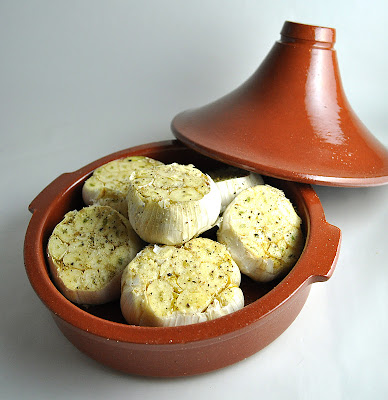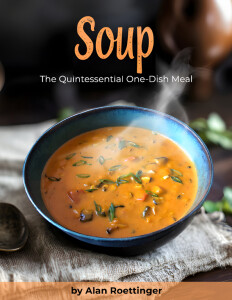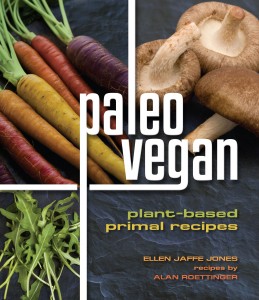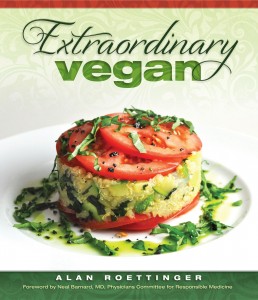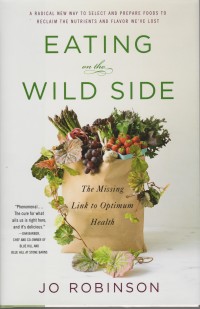When I make roasted garlic puree, I start with at least three or four cups of peeled garlic cloves. I toss them with a little olive oil, salt, and pepper, wrap them in parchment and several layers of aluminum foil, and then pop the package in a moderate-to-hot oven for about an hour. This is the wholesale method, which is ideal for making puree.
But sometimes it’s fun to roast whole heads of garlic in a covered crock (I use a small tagine, which is a traditional north African baking dish with a gracefully curved, cone-like lid). This method affords a fundamentally more refined experience. An entire head of garlic presented fresh from the oven permits individual lightly caramelized cloves to be plucked still warm, with a knife tip or tiny fork, and eaten whole or smeared on bread–the diner, all the while, surrounded by a rich roasted allium redolence. This is a far more elegant serving option than pureed roasted garlic, and unless you’re buying garlic already peeled, in the end it’s a much easier way to go.
The prep time is brief and the method is simple. Just cut the top quarter off each bulb. Save the tops, which should slip fairly easily out of their skins, for another use*.
Place the bulbs, cut side up, in a baking dish. Drizzle a generous amount of EVOO over them and season with lightly ground Celtic salt and freshly ground black pepper. Cover the dish and place it in an oven preheated to 400F. Bake for about 20 minutes, then turn the oven down to 375. Bake another 40 minutes and then check to see how they look. If they aren’t lightly browned, replace the lid and bake for another 15 minutes.
Ideally, serve the dish at once, lifting the lid at the table to suddenly release the roasted aroma, billowing up in a dramatic swirl of steam, and engulfing the guests.
*Make a quick garlic broth with the cut tops: Add them, skins and all, to a pot with a quart of water and two vegetable bouillon cubes. Bring to a boil. Reduce the heat to maintain a slow simmer, cover, and cook for about 15 minutes. Strain out the skins and bits. Use as a base for a soup or sauce, to thin purees, or for cooking rice or quinoa.

